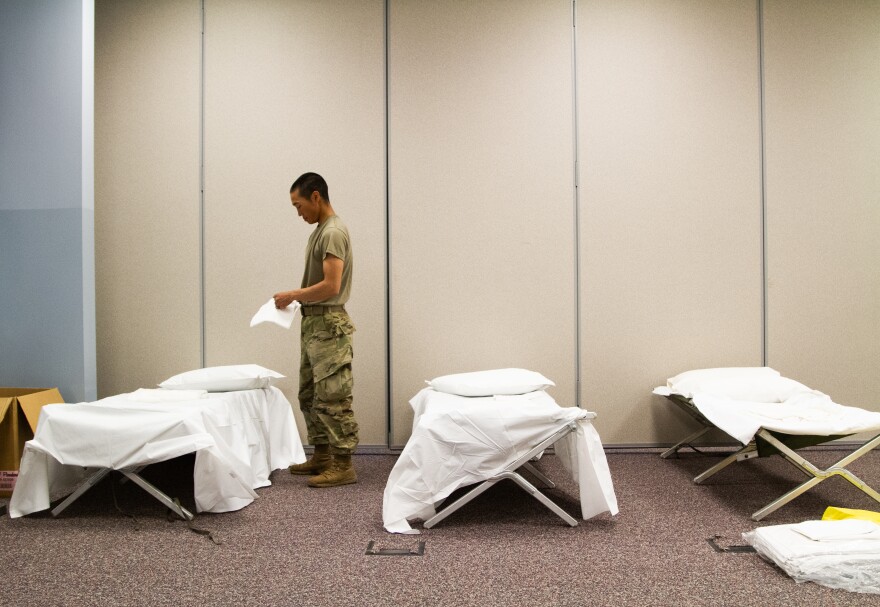At least 145 people chose to fly to Bethel after a historic tundra fire moved closer to their homes in the lower Yukon River communities of St. Mary’s, Pitkas Point, and Mountain Village. Most who relocated stayed at two emergency shelters in Bethel set up at the National Guard Armory and Gladys Jung Elementary School. On June 19, the shelters closed and the all people staying in them flew home. Many local individuals and organizations worked together to help the people who relocated. Here is a list of some of them.
The Yukon-Kuskokwim Health Corporation (YKHC) organized flights to and from Bethel for people who wanted to relocate. YKHC coordinated donations and ran emergency shelters that were set up at the National Guard Armory and Gladys Jung Elementary School, before handing off shelter operations to the Red Cross on June 12. YKHC continued to run the food operations and a medical clinic at the shelters. The health corporation also donated bottled water to St. Mary’s after the community water system began leaking.
The day relocations began, on June 9, Yute Commuter Service diverted most of its fleet to St. Mary’s to fly people to Bethel. The regional airline continued shuttling people to Bethel as the fire progressed. It also flew pallets of bottled water into St. Mary’s for free, according to Director of Stations Andrew Flagg.
The Association of Village Council Presidents (AVCP) worked closely with YKHC to support the shelter operations before YKHC handed over operations to the Red Cross, according to AVCP Benefit Division Director Kathy Nenneman. AVCP staff members volunteered to cook meals. AVCP stationed two village public safety officers at the armory shelter to provide security. And the AVCP Benefits Division purchased items requested by people staying at the shelters, including baby bottles, baby formula, diapers, wipes, sleeping bags, and clothing. AVCP also donated bottled water to St. Mary’s.
The Bethel Lions Club opened its kitchen to cook meals for the people staying at the shelters, according to club president Susan Taylor.
The Lower Kuskokwim School District opened up the Gladys Jung Elementary School as an emergency shelter.
Orutsararmiut Native Council donated king salmon caught at the Alaska Department of Fish and Game Bethel Test Fishery to the shelters, according to ONC Natural Resources Director Gisela Chapa.
The YK Delta Lifesavers and Bethel Community Services Foundation (BCSF) provided pool passes for people relocated to Bethel. The organizations worked with Kusko Cab and the Yukon-Kuskokwim Fitness Center to make it happen, according to information shared by BCSF Executive Director Michelle DeWitt. BCSF is also providing boxes of food to people who have relocated because of the fires and to households that are hosting them.
The City of Bethel donated cots to the emergency shelter at the Bethel Armory, according to Bethel City Manager Pete Williams. The Bethel Public Works Department has also been supplying the armory with water and evacuating sewage.
Tundra Women’s Coalition donated snacks, diapers, soap, and other supplies, according to Executive Director Eileen Arnold.
Two individuals, Angelina Lott and Alana Ulak, set up a GoFundMe campaign to purchase bottled water for St. Mary’s, Pilot Station, and Pitkas Point. Both water systems in St. Mary’s and Pilot Station are leaking. The bottled water is being distributed to residents and fire personnel.







